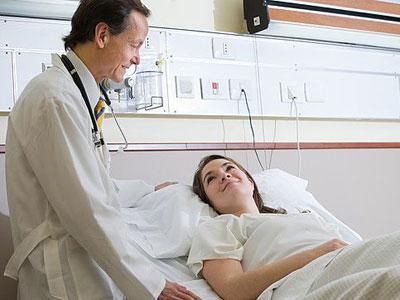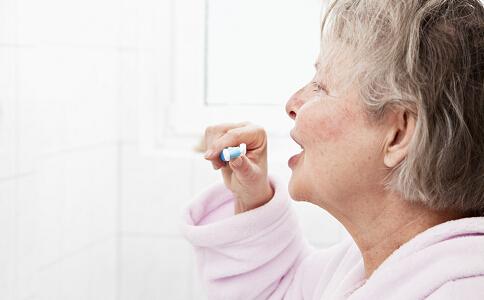早期乳腺癌女性如果肿瘤大小超过一定范围或者开始扩散到淋巴结,提示癌症复发的临床风险非常高,那么通常会在手术之后接受化疗。但是,其中许多接受这种痛苦的治疗之后,几乎没有收到任何疗效。
2016年8月25日,美国麻省(马萨诸塞州)医学会官方期刊《新英格兰医学杂志》正式发表葡萄牙里斯本尚帕利莫基金会临床中心、加利福尼亚大学旧金山分校、海伦·迪勒家庭综合癌症中心、比利时天主教鲁汶大学中心医院、布鲁塞尔自由大学朱尔·博尔代研究所、乳腺国际组织(BIG)、欧洲癌症研究和治疗组织(EORTC)、意大利米兰大学、欧洲肿瘤学研究所、欧洲乳腺癌联盟、克雷莫纳医院、法国古斯塔夫·鲁西研究所、居里研究所、巴黎第五大学、雷内·于根南医院、乔治-弗朗索瓦-勒克莱尔中心、瑞士生物信息研究所、洛桑大学、荷兰Agendia分子诊断、荷兰癌症研究所、莱德多普医院、耶罗恩·博斯医院、阿尔克马尔医疗中心、斯洛文尼亚肿瘤研究所、德国杜伊斯堡贝塞斯达福音医院、美国德克萨斯大学健康科学中心、西班牙巴塞罗那自治大学瓦尔·德西布伦医院、英国伦敦帝国学院、美国德克萨斯大学M.D.安德森癌症中心的大型临床研究报告,发现70-基因检测可能预测癌症有无复发可能,通过接受70-基因检测(MammaPrint),每年确诊早期乳腺癌的逾10万位欧美女性可能不必接受化疗。

70-基因检测对肿瘤活检组织切片进行扫描,查找与癌细胞是否可能增殖或侵袭健康组织相关的70种基因,从而判断患者术后癌症复发可能性是否很高。
该随机Ⅲ期研究针对6693例早期乳腺癌女性,进行为期5年的随访,在被70-基因检测认为从基因组角度衡量癌症复发风险较低但临床风险较高的1550例(23.2%)患者中,无远处转移的生存率为94.7%(95%置信区间:92.5~96.2),癌症并未复发或者扩散到身体其他部位,与接受化疗的患者相比低1.5%,与雌激素受体阳性、HER2阴性和无论淋巴结阴性或阳性病变亚组患者相似。
因此,每年大约44.5万例早期乳腺癌欧美女性中,10.2万例经过70-基因检测之后,可能有能力放弃化疗。
虽然70-基因检测费用约为3000美元,但是鉴于每例患者每周期化疗费用约为2.6万美元,该检测可能实现医疗费用减少。
该研究结果公布之时,肿瘤学家们正在尝试寻找对乳腺癌女性而言负担更小的治疗方案。即使癌症复发风险很低,这些患者有时也会进行双侧乳腺切除等大手术。
对此,美国临床肿瘤学会、纪念斯隆-凯特林癌症中心、康奈尔大学医学院的肿瘤学家发表同期述评:不断提高的乳腺癌辅助疗法精准性。
N Engl J Med. 2016 Aug 25;375(8):717-729.
70-Gene Signature as an Aid to Treatment Decisions in Early-Stage Breast Cancer.
Cardoso F, Van't Veer LJ, Bogaerts J, Slaets L, Viale G, Delaloge S, Pierga JY, Brain E, Causeret S, DeLorenzi M, Glas AM, Golfinopoulos V, Goulioti T, Knox S, Matos E, Meulemans B, Neijenhuis PA, Nitz U, Passalacqua R, Ravdin P, Rubio IT, Saghatchian M, Smilde TJ, Sotiriou C, Stork L, Straehle C, Thomas G, Thompson AM, van der Hoeven JM, Vuylsteke P, Bernards R, Tryfonidis K, Rutgers E, Piccart M; MINDACT Investigators.
Champalimaud Clinical Center-Champalimaud Foundation, Lisbon, Portugal; Helen Diller Family Comprehensive Cancer Center, University of California, San Francisco; European Organization for Research and Treatment of Cancer Headquarters, Breast International Group Headquarters, Institut Jules Bordet, Université Libre de Bruxelles, Brussels, Centre Hospitalier Universitaire Université Catholique de Louvain, Namur, Belgium; University of Milan and Istituto Europeo di Oncologia and Europa Donna-European Breast Cancer Coalition, Milan, Azienda Istituti Ospitalieri di Cremona, Cremona, Italy; Gustave Roussy, Villejuif, Institut Curie Paris Sciences et Lettres, Université Paris Descartes, Sorbonne Paris Cité, Paris; Institut Curie-Hopital Rene Huguenin, Saint-Cloud, Centre Georges-Francois-Leclerc, Dijon, France; Swiss Institute of Bioinformatics and University of Lausanne, Lausanne, Switzerland; Agendia and the Netherlands Cancer Institute, Amsterdam, Alrijne Ziekenhuis, Rijnland Leiderdorp, Jeroen Bosch Hospital, 's-Hertogenbosch, Medisch Centrum Alkmaar, Alkmaar, Netherlands; Institute of Oncology, Ljubljana, Slovenia; Evangelisches Krankenhaus Bethesda, Duisburg, Germany; University of Texas Health Sciences Center, San Antonio; Hospital Universitario Vall d'Hebron, Barcelona; Imperial College London, London; University of Texas M.D. Anderson Cancer Center, Houston.
Background: The 70-gene signature test (MammaPrint) has been shown to improve prediction of clinical outcome in women with early-stage breast cancer. We sought to provide prospective evidence of the clinical utility of the addition of the 70-gene signature to standard clinical-pathological criteria in selecting patients for adjuvant chemotherapy.
Methods: In this randomized, phase 3 study, we enrolled 6693 women with early-stage breast cancer and determined their genomic risk (using the 70-gene signature) and their clinical risk (using a modified version of Adjuvant! Online). Women at low clinical and genomic risk did not receive chemotherapy, whereas those at high clinical and genomic risk did receive such therapy. In patients with discordant risk results, either the genomic risk or the clinical risk was used to determine the use of chemotherapy. The primary goal was to assess whether, among patients with high-risk clinical features and a low-risk gene-expression profile who did not receive chemotherapy, the lower boundary of the 95% confidence interval for the rate of 5-year survival without distant metastasis would be 92% (i.e., the noninferiority boundary) or higher.
Results: A total of 1550 patients (23.2%) were deemed to be at high clinical risk and low genomic risk. At 5 years, the rate of survival without distant metastasis in this group was 94.7% (95% confidence interval, 92.5 to 96.2) among those not receiving chemotherapy. The absolute difference in this survival rate between these patients and those who received chemotherapy was 1.5 percentage points, with the rate being lower without chemotherapy. Similar rates of survival without distant metastasis were reported in the subgroup of patients who had estrogen-receptor-positive, human epidermal growth factor receptor 2-negative, and either node-negative or node-positive disease.
Conclusions: Among women with early-stage breast cancer who were at high clinical risk and low genomic risk for recurrence, the receipt of no chemotherapy on the basis of the 70-gene signature led to a 5-year rate of survival without distant metastasis that was 1.5 percentage points lower than the rate with chemotherapy. Given these findings, approximately 46% of women with breast cancer who are at high clinical risk might not require chemotherapy.
Funded by the European Commission Sixth Framework Program and others; ClinicalTrials.gov number, NCT00433589; EudraCT number, 2005-002625-31
PMID: 27557300
DOI: 10.1056/NEJMoa1602253
N Engl J Med. 2016 Aug 25;375(8):790-791.
Increasing Precision in Adjuvant Therapy for Breast Cancer.
Hudis CA, Dickler M.
American Society of Clinical Oncology, Alexandria, VA; Breast Medicine Service, Memorial Sloan Kettering Cancer Center, Weill Cornell Medical College, New York.
Genomic testing of tumors can enable improved matching of individual patients or groups with treatments, but it can also identify situations where a specific intervention is not effective. In the recently reported results of the Trial Assigning Individualized Options for Treatment (TAILORx), investigators showed how one assay - the 21-gene recurrence score - could select a cohort of patients who had a 99% chance of 5-year survival without distant metastasis in whom currently available cytotoxic adjuvant chemotherapy could not be justified. A similar result was also seen in the West German Study Group PlanB trial. As we consider the practical . . .
PMID: 27557306
DOI: 10.1056/NEJMe1607947
 爱华网
爱华网



